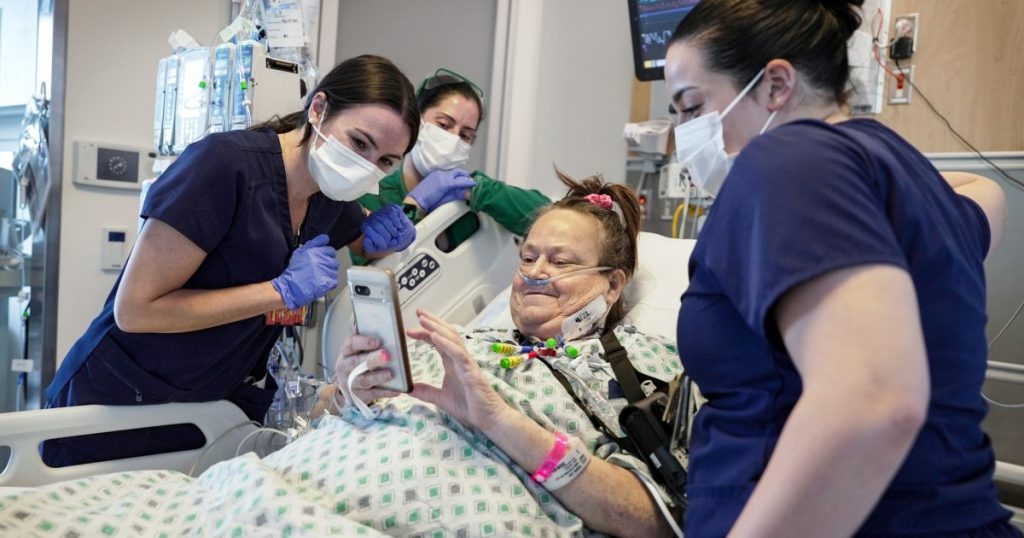A woman who received a pig kidney transplant is back on dialysis after surgeons had to remove the failing organ 47 days after the procedure. Lisa Pisano was the second person to receive a kidney from a gene-edited pig, and NYU Langone Health announced she is stable after the operation to remove the organ. The first patient to receive a pig kidney transplant, Richard “Rick” Slayman, died in early May, but doctors said his death was not a result of the experimental transplant. Pisano’s heart and kidneys were failing when doctors implanted a mechanical pump to keep her heart beating and then the pig kidney, but challenges arose in managing both the heart pump and kidney, leading to the loss of kidney function.
Pisano’s blood pressure dropped too low multiple times, affecting optimal blood flow to the kidney, ultimately leading to the removal of the organ. A recent kidney biopsy showed no signs of rejection, but there was significant injury from insufficient blood flow. NYU will study the explanted kidney for further insight into its reaction inside a living person. Montgomery noted that Pisano wasn’t a candidate for a life-prolonging heart pump while on dialysis, and her heart disease barred a traditional kidney transplant. The team at NYU is hoping to get Pisano back home to her family soon, and her strength in the face of adversity serves as inspiration for pursuing the promise of xenotransplantation.
With over 100,000 people on the U.S. transplant waiting list, most of whom need a kidney, the shortage of donated organs remains a challenge. In an effort to address this issue, several biotech companies are genetically modifying pigs to make their organs more humanlike and less likely to be rejected by people’s immune systems. Formal studies of these modified organs are expected to begin next year, but in the meantime, research teams have been temporarily transplanting pig kidneys and hearts into brain-dead bodies with promising results. Along with the Mass General pig kidney transplant, the University of Maryland also transplanted pig hearts into two men who had no other options, but both patients died within months of the procedure.
Lisa Pisano knew there was a chance the pig kidney might not work, but she decided to take that chance in the hopes that it could potentially help someone else if not herself. Her experience highlights the risks and challenges involved in experimental organ transplants and the importance of ongoing research in the field of xenotransplantation. Despite the setback, researchers remain committed to exploring the potential of pig organs as a solution to the organ shortage crisis, and studies are ongoing to determine the viability and safety of these transplants. While there have been setbacks and challenges in these early trials, the hope is that continued research and advancements in technology will eventually lead to more successful and sustainable organ transplant options for those in need.













